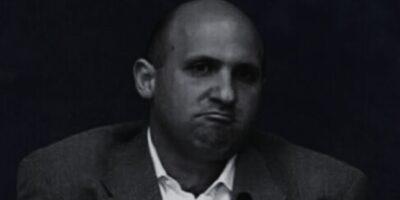It is being denounced by human rights advocates
1,327 young people, including 290 women, hoping to join the Haitian National Police (PNH) have undergone the psychological test at the National Police Academy, according to a note published on Facebook by the PNH on Thursday, May 5.
In a predominantly young country with growing unemployment, the institution’s recruitment process offers a dangerous but palpable opportunity for employment.
Also palpable is the infamous and much feared physical exam nicknamed “ouvè le kò”. This test is required for admission to the police academy, in addition to other physical and psychological tests.
According to testimonies from a former unionist, a candidate who took the exam, a police officer, and a senior PNH official, the student must be completely naked for the “ouvè le kò” test. Then, a doctor under contract with the institution examines his body to verify for the absence of tattoos and piercings. A rectal examination is also performed because the potential police officer “must not have anal problems,” explains former police officer Abelson Gros-Nègre, a graduate of the 21st PNH class and former spokesperson for the Haitian National Police Union (SPNH-17). Gros-Nègre, who joined the institution in 2008, says he has witnessed several scenes of “ouvè le kò”.
Some candidates may not be selected because they engage in unconventional sexual activity or suffer from a hemorrhoidal condition, recounts Abelson Gros-Nègre.
Within the PNH, medical reasons are cited to justify the invasive procedure. Candidates rejected from the recruitment process without explanation speak of a hunt for individuals who practice anal sex.
The examination shows a “lack of respect for the privacy of the individual,” according to the program manager at the National Human Rights Defense Network (RNDDH), Rosy Auguste Ducena.
“We don’t understand, and we don’t see what could prevent a candidate, for example, who has the habit of having anal sex, from joining the PNH,” said the human rights activist.
“Unfortunately, she says, « we are in a society that decides to use the individual’s choice to turn it against them.”
Contacted by AyiboPost, Garry Desrosiers, spokesman for the PNH, said that these files are strictly confidential.
When contacted by AyiboPost, a doctor who works for the PNH in the recruitment process, did not want to react. He delegated another professional to speak in his place.
Maximen Verneus, a surgeon and resident at the State University of Haiti Hospital, explains that the rectal exam is a step in the physical examination of any patient, especially with regard to finding abdominal problems.
According to the doctor, it is a physical exam that surveys the anal margin (the rectum as well as the pouches of Douglas) and the prostate in men.
According to Dr. Verneus, this examination can detect whether the anal margin has fistulas (wounds, sores).
The digital rectal exam can also identify cases of hemorrhoids, and veins that drain the anal margin. The dilation of these veins can lead to hemorrhoidal illnesses, explains the specialist.
A young PNH candidate, for example, who suffers from hemorrhoids and makes muscle contractions can suddenly have a hemorrhoidal rupture that can be life threatening.
The rectal exam also helps to assess the tone of the anal sphincter. The anal margin has folds called Morgagni’s valves and Monroe’s folds that generate anal sphincter tonicity. They lend firmness to the person.
A young anal sex enthusiast will lose the valves and folds of Monroe, he says.
It is not clear why a person with hemorrhoids, for example, a curable illness, should not be part of the PNH.
In a document forwarded to AyiboPost through an intermediary, a police official said that a candidate must complete eight stages to be admitted to the police academy.
These steps are included in the Recommended Medical Standards (SMR) Manual.
Moreover, the charter of engagement adopted on February 6, 1996, by the General Direction of the Police notes in its first article the conditions of engagement for a candidate to the PNH.
According to this charter, the prospective police officer must be of Haitian nationality and never have renounced his nationality. He must be between 18 and 30 years of age at the time of registration. He must never have been convicted of a criminal act. He must be physically and morally fit for the position, enjoy his civil rights and not be a pensioner.
Rosy Auguste Ducena believes that some provisions in the charter such as “having the physical and moral aptitude to carry out the job” are ambiguous and can be used to violate human rights.
A police officer of the 26th class who requested anonymity confirmed that he had undergone the “ouvè le kò” test, which requires the candidates to expose themselves naked. “Many candidates had not passed this step, but they were not told why they had not passed,” he says.
A candidate who failed the test, interviewed by AyiboPost, requests anonymity because he wants to repeat the process. He says he was not informed of the results of the physical exam.
This non-transparent approach can lead to abuse and arbitrary decisions.
The human rights activist, Rosy Auguste Ducena, believes that candidates should be informed of the problems revealed by these medical examinations.
English translation by Didenique Jocelyn and Sarah Jean.







Comments